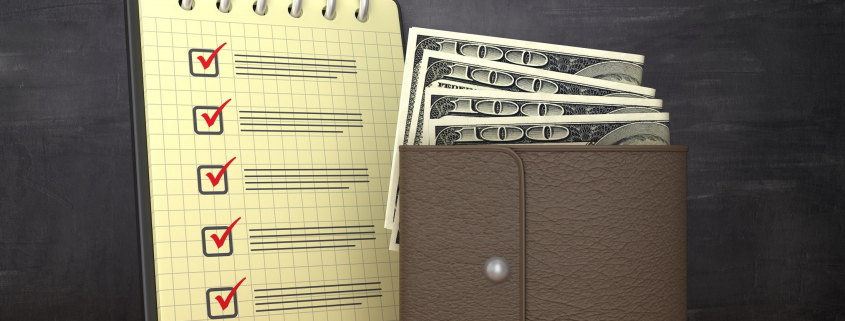Small Business Loan Application Checklist | Updated for 2023
Building and running a small business is hard. It takes conviction, leadership, sound management and, every so often, a much-needed injection of financing. In both good and lean times businesses are often faced with the decision to pursue some type of financing. However, applying for and acquiring small business loans and alternate financing can often be daunting – even if you’ve done it before. And traditional lenders do not make that experience easy.
The good news is that getting financing doesn’t have to be this hard. We help thousands of small businesses everyday and want to share secrets of getting good financing options quickly. So, we have compiled a simple checklist of actions you can take to make the process fast, simple and easy.
However, as you get ready to apply for a small business loan, you should consider the following questions carefully to be sure you are not surprised by any unforeseen requests or adverse decisions from lenders.
Six questions every business must ask in 2020 before applying for a small business loan | Download PDF
1. Should you apply for a small business loan?
While a small business loan is a great way to reduce the pressure on cash flows, you could have viable alternatives for relieving cash flow crunch like selling debt owed to your business and renegotiating contracts to allow for longer payment terms. Also, make sure you have considered all alternate sources of financing including friends and family.
2. Is a small business loan good for your business?
Understand the effect of repayment of small business loan on your cash flow. A loan does not change the fundamental working of the business. It strengthens a fundamentally sound business and quickly breaks a business that is fundamentally unsound.
3. Can you qualify for a business grant?
Unlike loans, you don’t have to pay back grants. Before applying for a small business loan, see if you qualify for a federal or private small business grant. However, grants can be highly competitive and may not fit your financial time horizon.
4. What types of small business loans are there?
There are over a dozen types of small business loans and alternative financing options for small business. The most popular options are government-backed SBA loans, revenue-based financing and factoring. Download this eGuide to learn more about different types of small business financing.
5. When should you apply for a small business loan?
Apply only once you have determined that a business loan will help strengthen your business, and you understand the different types of financing options like Small Business Loans, Revenue Based Financing, Factoring, and Equipment Financing. Each of these options have unique requirements so make sure you understand them well before speaking with a lender.
6. Should you work with a small business loan broker?
Brokers are a great resource to get offers from multiple lenders. However, many online marketplaces like Kapitus, will get you offers from multiple lenders without the additional broker fee which is borne by the borrower.
Small Business Loan Application Checklist| Download PDF
1. Run a quick cash flow analysis on your business account
Cash flows are one of the primary indicators that lenders use to understand the health of your business. Showing 3 to 6 months of positive cash flow can get you approved faster. It can even get you better financing terms for your small business loan. You can learn more about cash flows and ways to improve them in “How to Prepare Your Small Business for Cash Flow Needs.”
2. Collect at least 3 months of bank statements
Your business accounts are another good indicator of your company’s financial health. Generally, lenders want to see a positive daily balance on your bank statements. Remember, a well managed cash flow will directly improve your bank accounts.
3. Identify unusually large deposits to your bank accounts and gather supporting documents to help explain them
While presence of unusually large deposits can delay finalization of loans, they are not necessarily bad. Many businesses, like construction companies, can easily explain their presence on the bank statements. Some businesses understandably have large swings in deposits and credits to their account. If your business is like that, you can expedite your loan application process and get really good terms on your small business loan by providing a copy of your account receivables and future contracts.
4. Get a copy of your free credit report and make sure there are no red flags
A strong personal credit goes a long way to assure any lender about the fiscal responsibility of the person running the business. You can get a free copy of your credit report from annualcreditreport.com. If you find any incorrect information on your credit report, contact each credit reporting agency (Experian, Transunion and Equifax) immediately to correct the issue. Keep in mind that while small delinquencies are understandable, lenders are uncomfortable with statements that show delinquencies on child support or recently dismissed (not discharged) bankruptcies.
5. Reduce the number of lenders to whom you owe money
Too many lenders pulling money from the business can create severe strain on its cash flow. Lenders want to know that the money they provide will help grow your business and not put additional strain on its daily operations. You may want to wait to finish your current loan obligations before going back to the market to raise more capital.
6. Resolve any open tax liens
Unresolved open tax liens can hurt your ability to obtain financing. If possible, try to get a payment plan on any open tax lien. A payment plan on a tax lien is far better than an open unresolved tax lien.
7. Get three business references
Trade references help to establish authenticity and credibility of your business. If you rent commercial space for your business, make sure that the landlord is one of your references.
8. Have tax statements handy when applying for a large sum
Lastly, businesses contemplating borrowing large sums over $75,000 should get a copy of their last year tax statement and business financial statements.
Obtaining small business loans doesn’t have to be a daunting process. Use this checklist before applying for a business loan or alternate financing and get the funds your business deserves.







